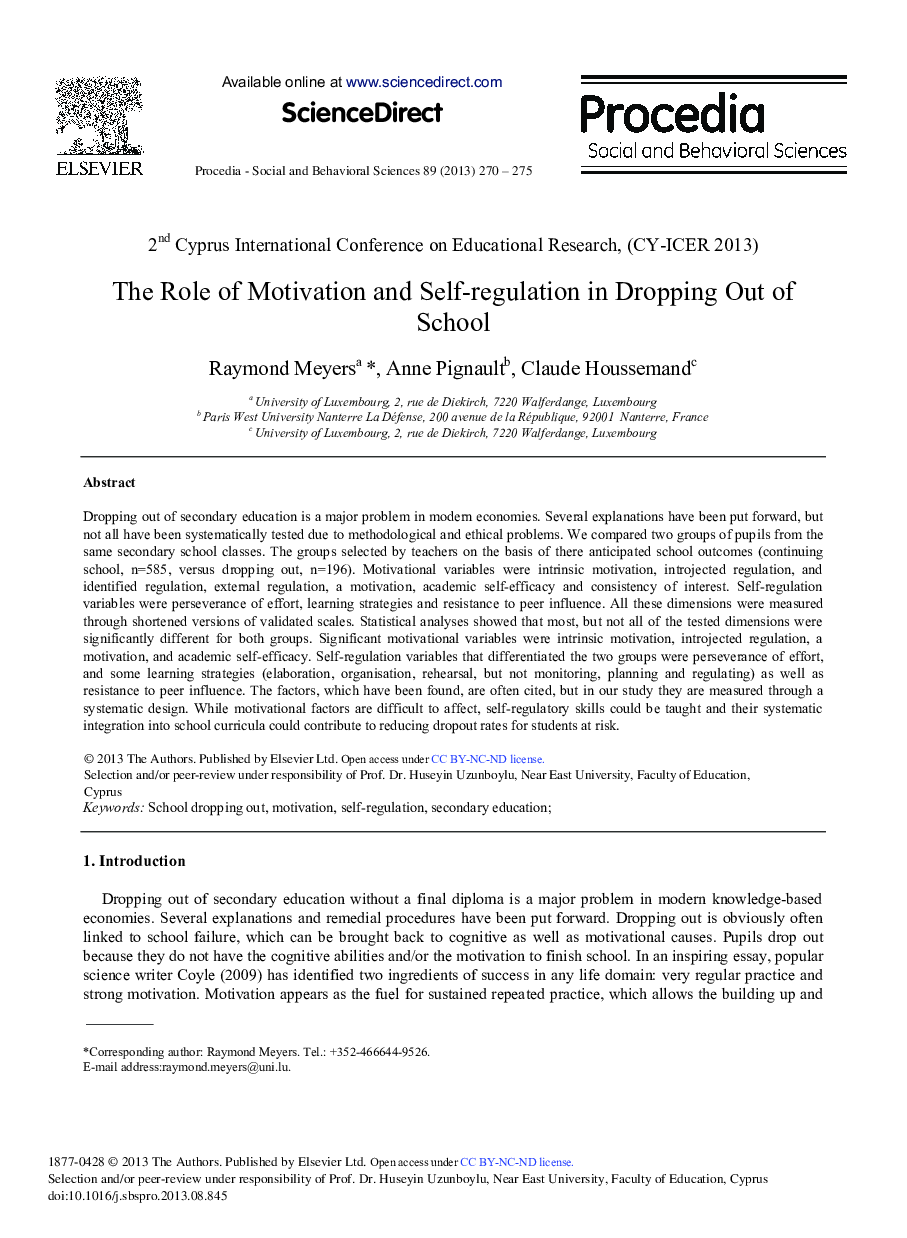| Article ID | Journal | Published Year | Pages | File Type |
|---|---|---|---|---|
| 1119325 | Procedia - Social and Behavioral Sciences | 2013 | 6 Pages |
Dropping out of secondary education is a major problem in modern economies. Several explanations have been put forward, but not all have been systematically tested due to methodological and ethical problems. We compared two groups of pupils from the same secondary school classes. The groups selected by teachers on the basis of there anticipated school outcomes (continuing school, n=585, versus dropping out, n=196). Motivational variables were intrinsic motivation, introjected regulation, and identified regulation, external regulation, a motivation, academic self-efficacy and consistency of interest. Self-regulation variables were perseverance of effort, learning strategies and resistance to peer influence. All these dimensions were measured through shortened versions of validated scales. Statistical analyses showed that most, but not all of the tested dimensions were significantly different for both groups. Significant motivational variables were intrinsic motivation, introjected regulation, a motivation, and academic self-efficacy. Self-regulation variables that differentiated the two groups were perseverance of effort, and some learning strategies (elaboration, organisation, rehearsal, but not monitoring, planning and regulating) as well as resistance to peer influence. The factors, which have been found, are often cited, but in our study they are measured through a systematic design. While motivational factors are difficult to affect, self-regulatory skills could be taught and their systematic integration into school curricula could contribute to reducing dropout rates for students at risk.
